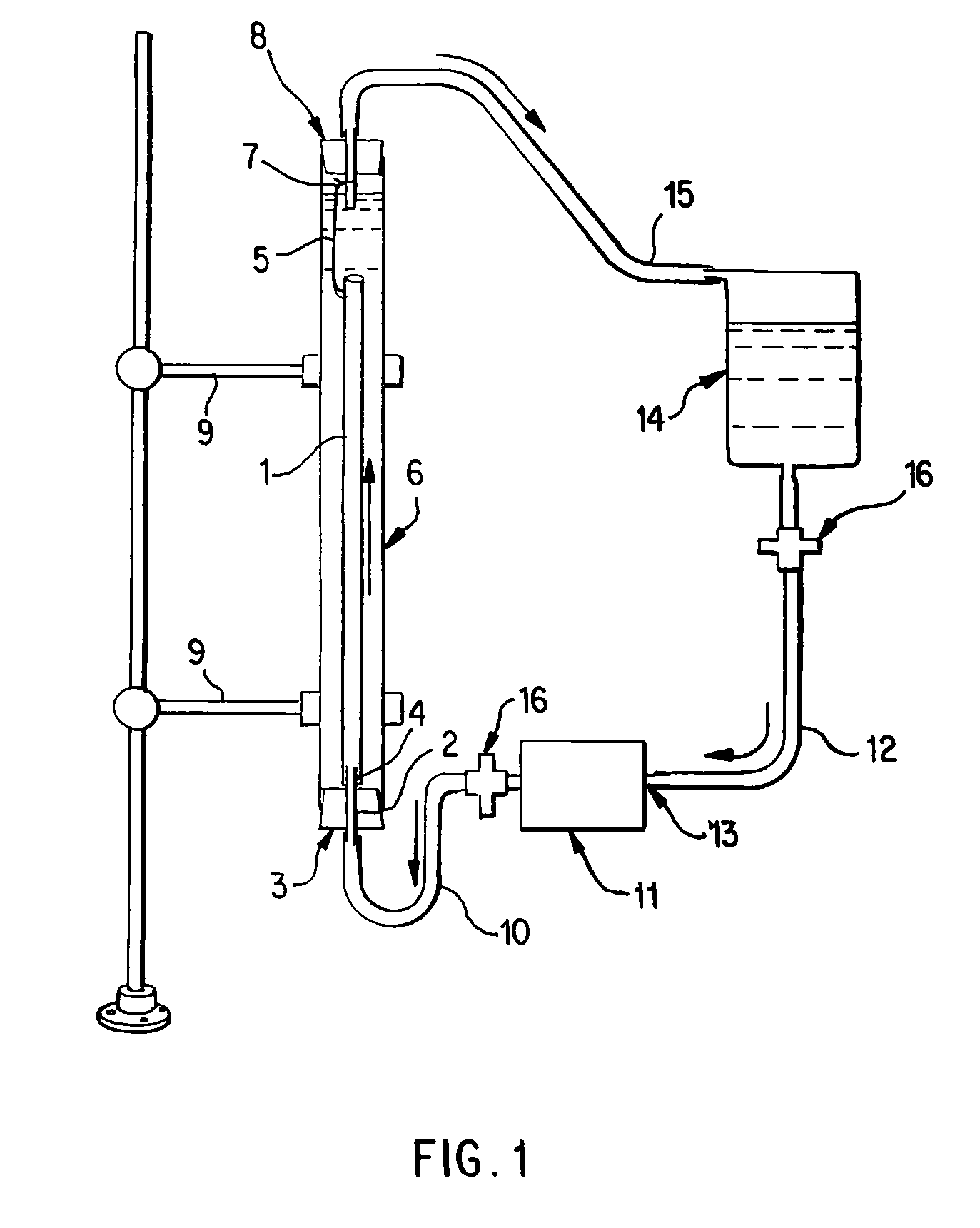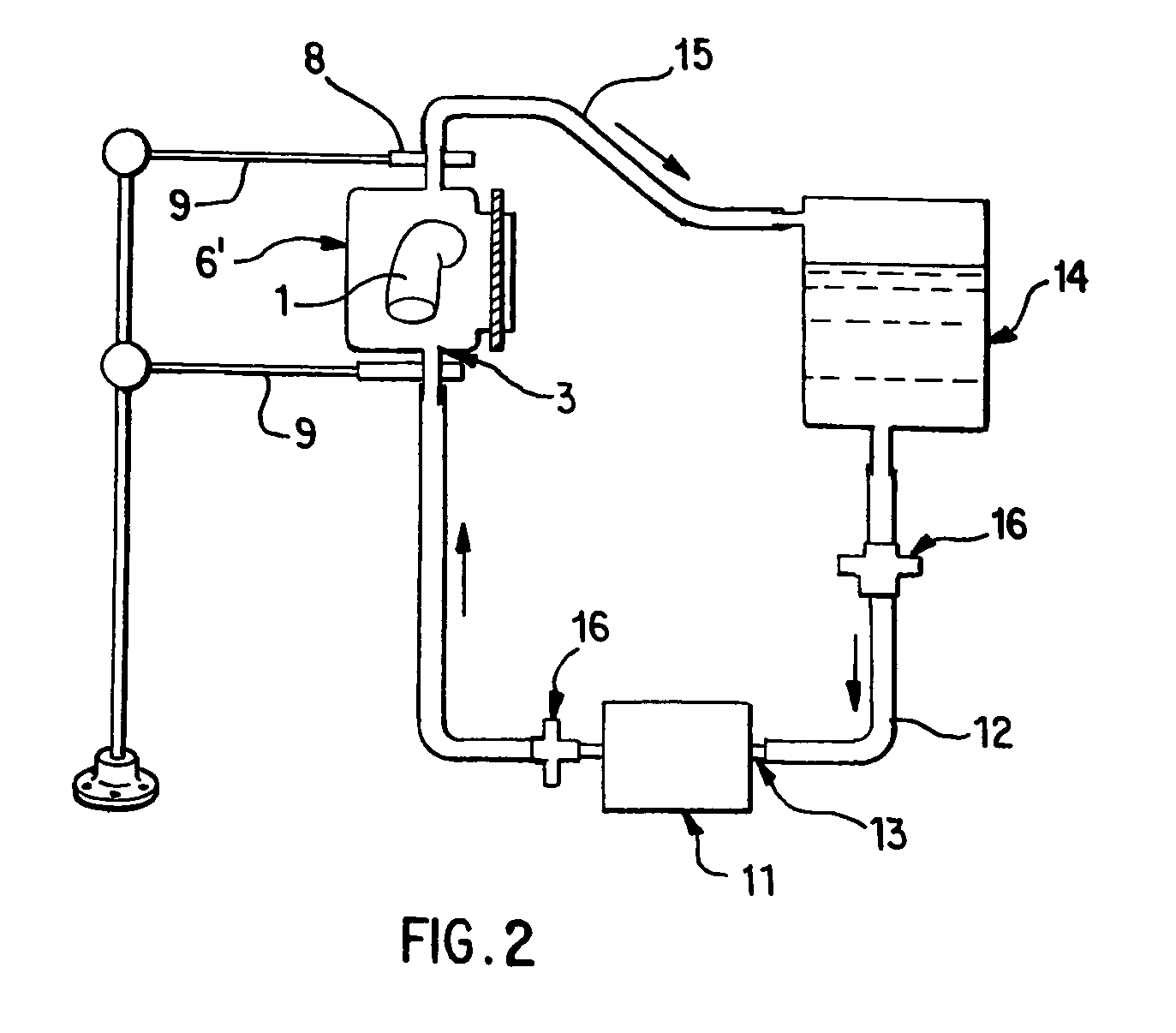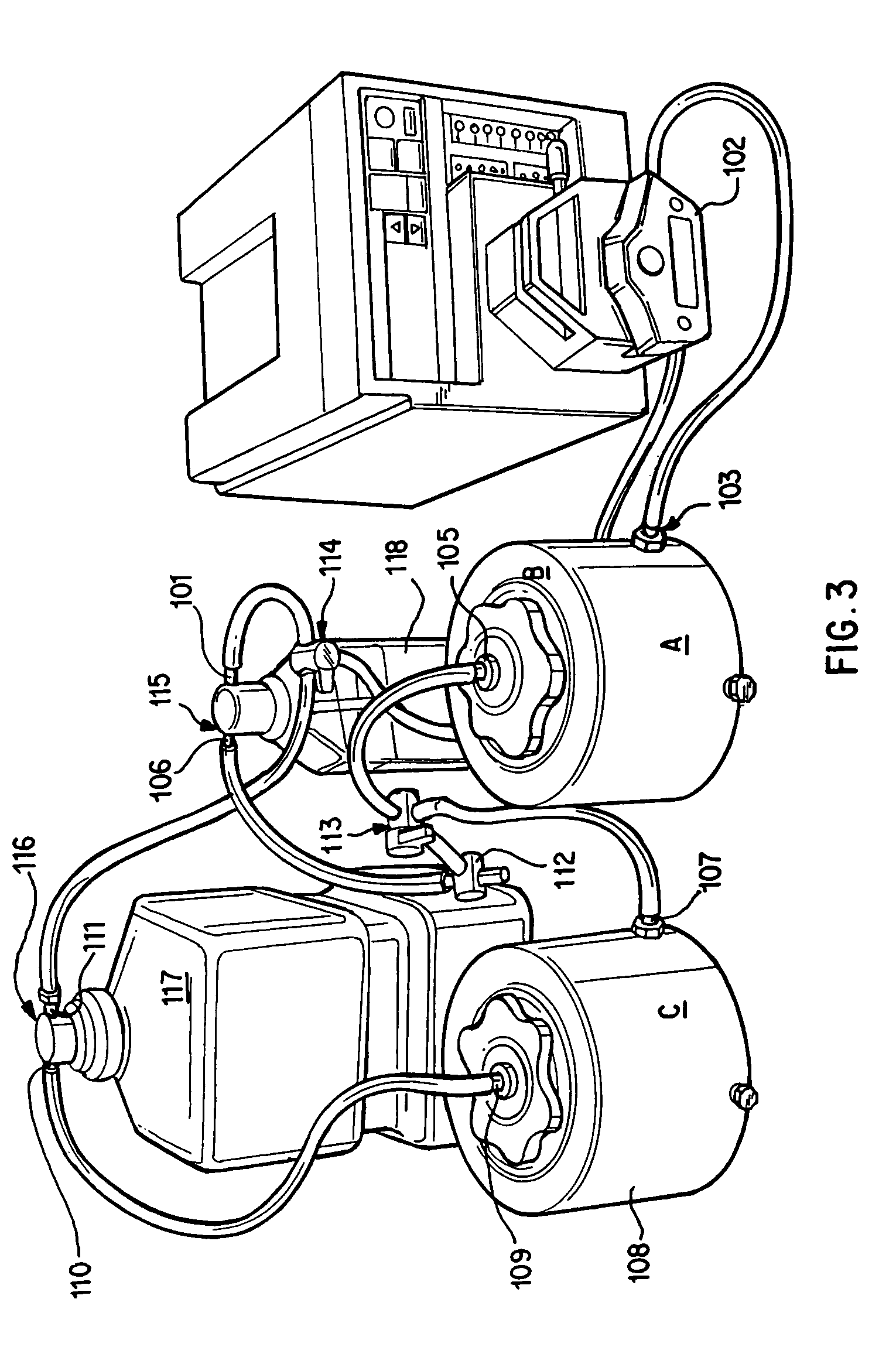Process for devitalizing soft-tissue engineered medical implants, and devitalized soft-tissue medical implants produced
a technology of soft tissue and engineered medical implants, which is applied in the direction of artificial cell constructs, cell dissociation methods, prosthesis, etc., can solve the problems of limited success, inability to devitalize soft tissue, and accumulation of residuals from various processing solutions, so as to improve production efficiency and optimize processing times and conditions , the effect of dramatic improvemen
- Summary
- Abstract
- Description
- Claims
- Application Information
AI Technical Summary
Benefits of technology
Problems solved by technology
Method used
Image
Examples
example 1
[0066]Saphenous vein tissues (two) from each leg of an acceptable human donor were carefully dissected under sterile conditions to remove all visible fat deposits and the side vessels were tied off using non-resorbable suture materials such that the ties did not occur in close proximity to the long run of the vessel. Sutures may restrict the devitalization process and the tissues under the sutures were removed following devitalization. For long vein grafts (40-60 cm) (FIG. 1), the distal ends of the veins were cannulated onto the ribbed attachment of the inlet ports and single sutures used to secure each vein. Additional suture lines were attached to the proximal ends of the veins. The veins were then removed from the dissecting solution (RPMI 1640, papaverine) and transferred to the processing vessel which had been temporarily inverted. The second suture line along with the vein was passed through the processing vessel and secured to a point on the outlet port end of the processing...
example 2
[0067]Saphenous vein tissues (two) from each leg of an acceptable human donor were carefully dissected under sterile conditions to remove all visible fat deposits and side vessels were tied off using nonresorbable suture materials such that the ties did not occur in close proximity to the long run of the vessel. Sutures may restrict the devitalization process and the tissues under the sutures were removed following devitalization. For long vein grafts (33 and 28 cm) (FIG. 1), the distal ends of the veins were cannulated onto the ribbed attachment of the inlet ports and single sutures used to secure each vein. Additional suture lines were attached to the proximal ends of the veins. The veins were removed from the dissecting solution (RPMI 1640, papaverin) and Polymixin B. Then the veins were cryopreserved according to current guidelines in RMPI 1640, 10% fetal calf serum, and 10% DMSO and control rate frozen at 1° C. / min and held in nitrogen vapor until devitalization. Prior to devit...
example 3
[0068]Internal mammary artery tissues (two) from an acceptable human donor were carefully dissected under sterile conditions to remove all visible fat deposits and side vessels were tied off using nonresorbable suture materials such that the ties did not occur in close proximity to the long run of the vessel. Sutures may restrict the devitalization process and the tissues under the sutures were removed following devitalization. For short artery grafts (11 and 8 cm) (FIG. 1), one end of each artery was cannulated onto the ribbed attachment of the inlet ports and single sutures used to secure each artery. The arteries were then removed from the dissecting solution (RPMI1640 and papaverine) and one or more antibiotics and transferred to the processing vessel which had been temporarily inverted. Prior to closing the processing vessel, a portion of the extracting solution was gently added to the processing vessel and the inlet port, with attached artery, was then secured. At this point, ...
PUM
 Login to View More
Login to View More Abstract
Description
Claims
Application Information
 Login to View More
Login to View More - R&D
- Intellectual Property
- Life Sciences
- Materials
- Tech Scout
- Unparalleled Data Quality
- Higher Quality Content
- 60% Fewer Hallucinations
Browse by: Latest US Patents, China's latest patents, Technical Efficacy Thesaurus, Application Domain, Technology Topic, Popular Technical Reports.
© 2025 PatSnap. All rights reserved.Legal|Privacy policy|Modern Slavery Act Transparency Statement|Sitemap|About US| Contact US: help@patsnap.com



